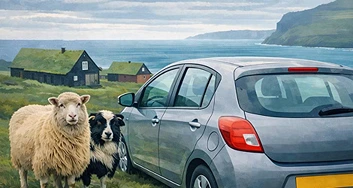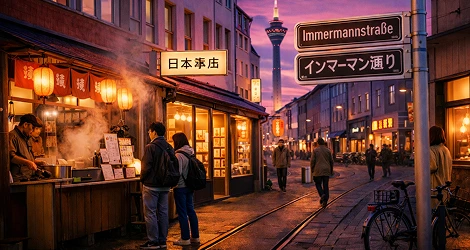The #DTTT hosted its third travel industry impact call, featuring even more valuable contributions and industry-wide insights from around the world. We welcomed more new faces and perspectives, shared recovery plans and followed the progress of destinations as the industry works through the crisis.
Listen to the full podcast 👇
As the situation continues to evolve, it brings with it a new range of developments and perspectives. Key contributors this week were the Singapore Tourism Board, ATTA and the Scottish Enterprise amongst others. The emerging insights from the industry impact call reveal that destinations are changing their narratives to respond to and inspire the post-COVID-19 visitor. Not only inspiring visitors, but taking action to reassure and assure visitor’s safety. This is a key strategy to rebuild the industry, pre and post COVID-19.
DMOs need to look beyond the COVID-19 crisis and focus on recovery
What is the new normal going to be beyond the COVID-19 crisis? That is a question that many DMOs are asking. A change of strategy is inevitable for DMOs. Planning, restructuring and reorganising are crucial right now. The Singapore Tourism Board has developed a very comprehensive strategy which looks beyond COVID-19. Their focus is tourism recovery and protecting jobs, with a revised budget allocated to these respectively. The first phase of their strategy focuses on domestic tourism, with the second phase focused on international tourism.
To build confidence and trust, destinations must change the narrative
The unpredictable nature of the crisis and its impact on the industry has meant that DMOs must change the way they communicate to visitors. Every DMO must be upfront and open about their destination. Transparency is key. Changing the approach from “visit now” to “visit later” and developing a welcoming environment for post recovery will inspire confidence and trust. It is an important message and the action behind it will not go unnoticed by potential visitors and the world community.
DMOs should demonstrate their efforts in making a destination safe
The COVID-19 pandemic has created much fear globally, therefore all efforts must be made by destinations to demonstrate the improvements they have made to health and safety. The Singapore Tourism Board has launched the SG Clean quality mark to the tourism and lifestyle sectors as it seeks to rebuild trust in the public and future visitors. In doing this it puts out the right message, that the country is one of the safest in the world for business and leisure travel. Milena Niklova from ATTA reiterates this point, as she confirms that people won’t travel unless they feel safe.
Communication is crucial, think about your response
In the midst of a crisis, it is important for DMOs to pause and think about how they will respond. Clear, aligned, consistent and coordinated communication is extremely important as Singapore Tourism Board have demonstrated, with their messages. Leire Gonzalez, our expert contributor from Spain, said it’s important for destinations to respond quickly during the crisis. Focusing on key messages, and customising the right message for the right person. As destinations move towards recovery, the first priority within the communication strategy should be to direct people to national tourism, in order to rebuild the industry from the inside.
This is a opportunity for DMOs to inspire with immersive content
While people may not be travelling, DMOs have a great opportunity to be creative, to reach potential visitors at home and stay top of mind. Many DMOs are now showcasing their destinations by offering 360 content and Virtual Reality (VR) experiences. These include tours of monuments, landmarks, activities and classes such as yoga, cooking, and dancing. People have plenty of time at the moment, and by offering them an interactive, virtual getaway, destinations can immerse potential visitors and provide them with the escapism they need.
Being agile and adaptive is key to industry recovery
It has been a hard time for the tourism sector, with huge disruption across the industry. However, what we have seen emerging, is a sense of social responsibility as the industry adapts to provide key support for the community during the crisis. For example, hotels are providing beds for key health workers and airlines are transporting medical supplies instead of passengers. The industry is supporting the world, even when it needs support itself. If a destination can provide support to people in any way,during the crisis, it will not only enhance its global reputation, but will be beneficial for its survival post recovery.
The industry is stronger when it works together
The Scottish Enterprise’s emergency response plan is about crisis management and stabilising the industry and ensuring there is support across the industry. The collaborative industry approach ensures that they are able to influence the government and gain that vital industry support. The key message is that industry is stronger when it works together.





















.webp)
